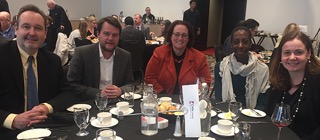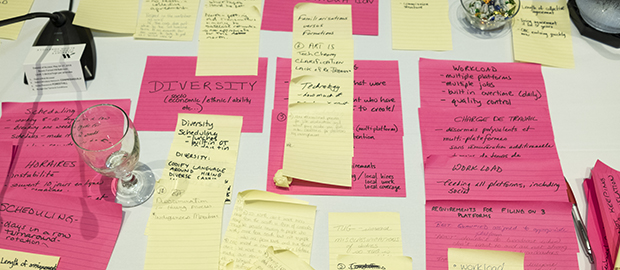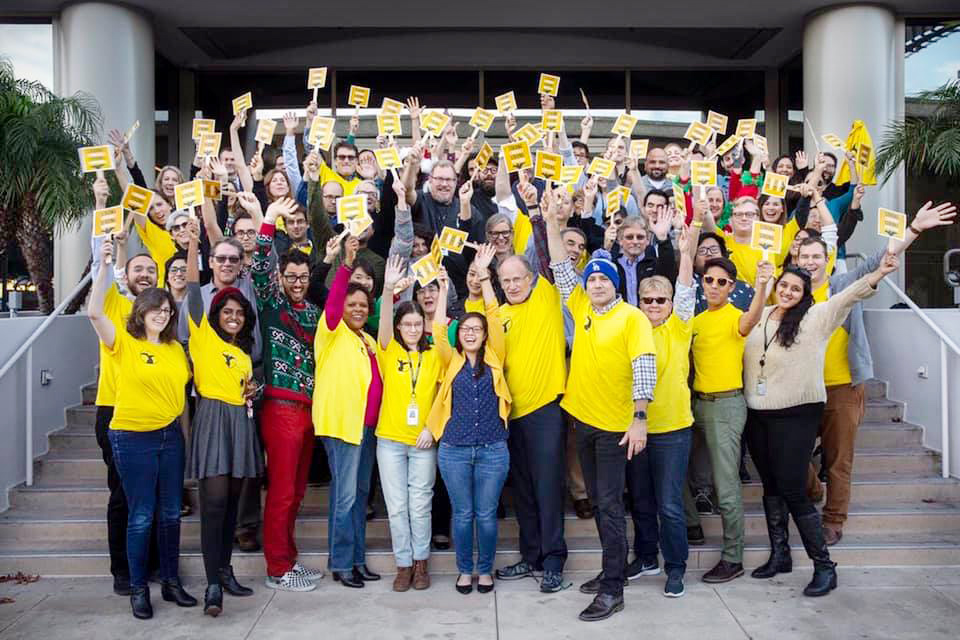
From left: CWA Canada President Martin O’Hanlon joined members Mike Blanchfield (Canadian Press), Nathalie Bastien (CBC), Angie Bonenfant (CBC), and Kristy Kirkup (CP), at a luncheon held by the Canadian Committee for World Press Freedom at the National Arts Centre in Ottawa.
On this day, we commit to continuing the fight to protect freedom of the press in the face of a growing threat around the globe.
We’ve long watched countries such as Saudi Arabia, China, Iran and Cuba strictly limit what journalists can report. But in recent years, we’ve seen the rise of demagogues and ultra-conservative parties in formerly progressive countries like Poland, Hungary, Turkey and the Philippines, who are openly hostile to the media. And then there’s the U.S., where the ugliness of Trump and his Republican enablers is a troubling threat.
Journalism is a pillar of democracy and attacks on the media are attacks on our democratic systems.
It is vital that progressive, moderate, responsible countries like Canada speak out publicly whenever freedom of the press is under attack, that we pressure other countries diplomatically to do better, and that we punish the worst offenders, through economic sanctions if necessary.
Restricting journalists’ rights is one thing, but in many countries, the situation is even more dire.
At least 94 media workers were killed in 2018, according to the International Federation of Journalists (IFJ), and nine out of 10 cases remain unpunished. Impunity reigns. Hundreds of journalists are imprisoned and, on a daily basis, media workers are attacked, beaten, detained, harassed, and threatened.
There are growing threats to digital safety with cyber-attacks, hacking and online harassment – especially of women journalists – all creating a safety crisis for news professionals.
Back in the fall, I spoke to a Senate committee on behalf of the IFJ about the growing threat to press freedom around the world and the need for a safety convention. We are working with the IFJ in pushing for an international Convention on the Safety of Journalists and Media Professionals, which we have asked the Canadian government to support.
Even in Canada, we must stay vigilant.
Last year, we saw Radio-Canada reporter Antoine Trépanier arrested by Gatineau police simply for doing his job and asking questions – based on a frivolous harassment complaint by someone who didn’t like what he was reporting. The case was dropped, but it should never have happened.
Also last year, a judge ordered Radio-Canada journalist Marie-Maude Denis to reveal her source in a corruption trial, a case that is now going to the Supreme Court.
And of course, the Supreme Court ruled last fall that VICE Media reporter Ben Makuch must hand over material he gathered about an accused ISIS fighter. CWA Canada was an intervener in that case.
Let’s be clear: The media is not — nor should it ever be — an arm of the state. As journalists, we must fight any attempt by anyone, especially authorities, to interfere with freedom of the press.
We will continue the fight for press freedom. It’s a fight we can’t afford to lose. As journalism goes, so goes democracy.


